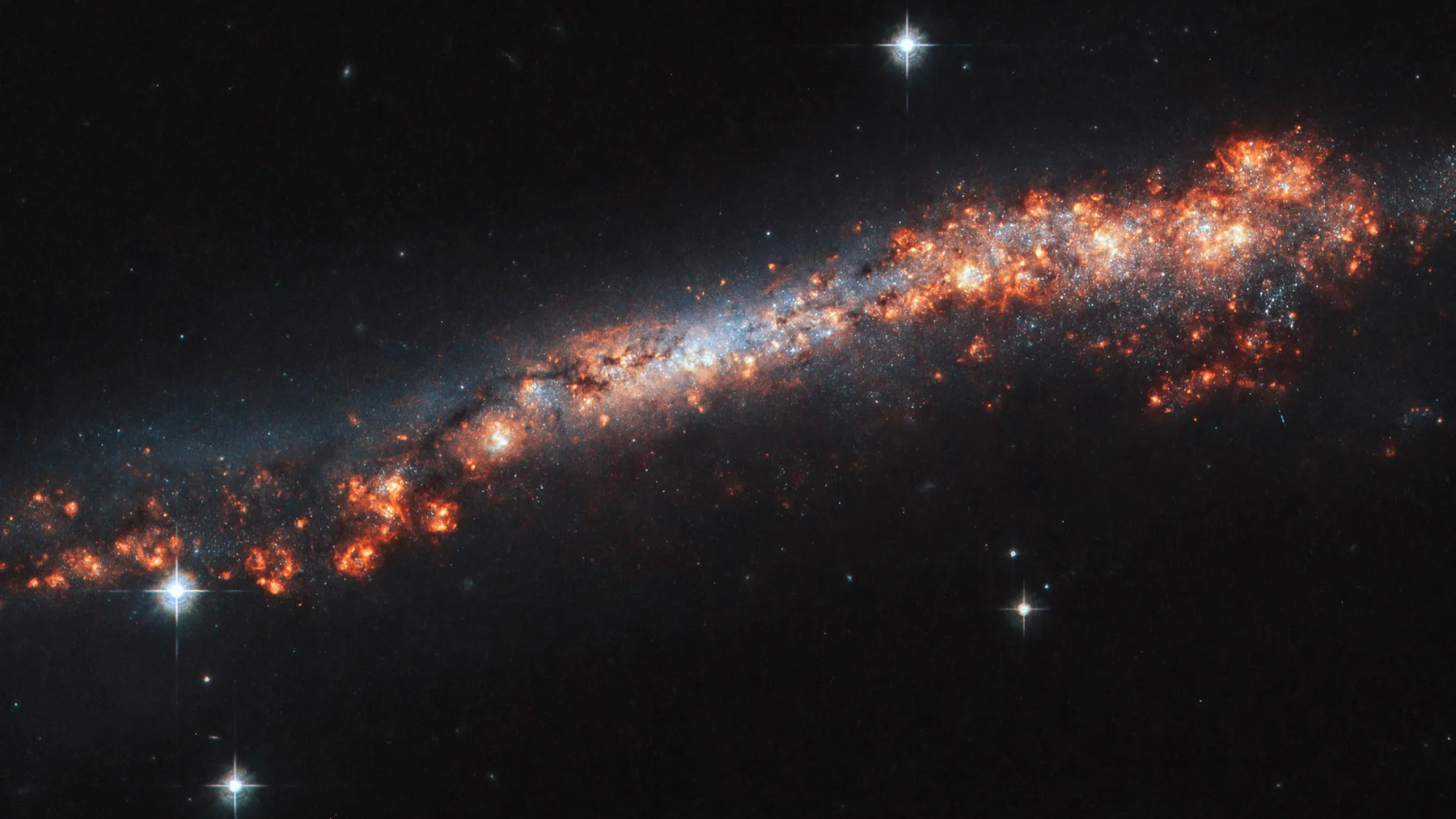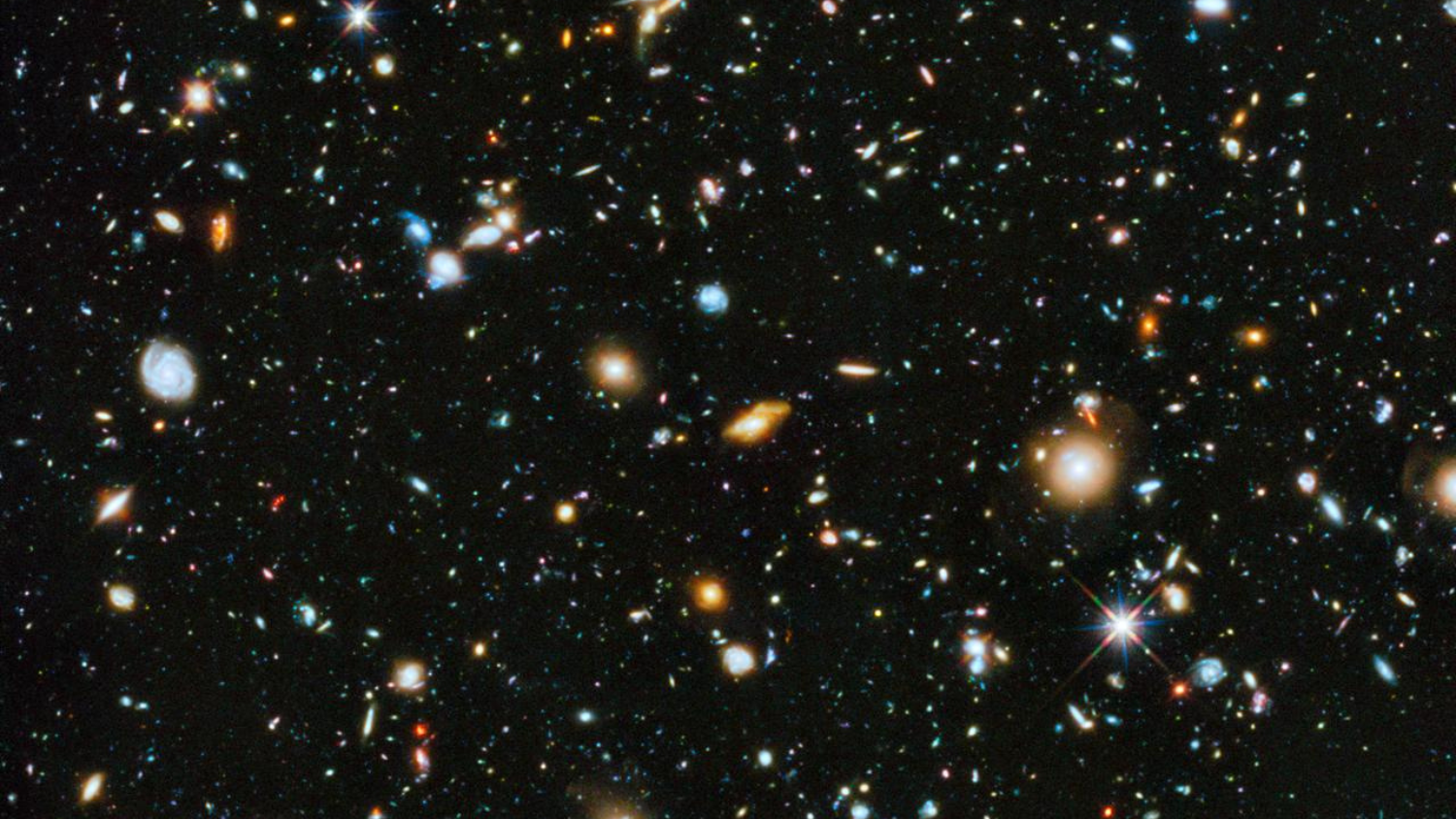NC Space Grant Congratulates 2023-2024 Student Teams in NASA Competitions

North Carolina Space Grant (NC Space Grant) congratulates nine student teams that competed in the 2023-2024 NASA and related science, technology, engineering, and math (STEM) competitions. These teams tackled STEM challenges, including launching and sustaining rockets thousands of feet in the air and efficiently mining through simulated lunar matter.
“As the competitions get more challenging each year, it is exciting to see our teams not only rise to the occasion but often exceed the technical requirements of the challenges.” said Sandy Canfield, assistant director for NC Space Grant.
Some highlights from this year include the UNC Charlotte 49er Rocketry Team earning third place in the NASA Student Launch national competition. Additionally, Lenoir-Rhyne University’s Rocket Team achieved its best final ranking in a university rocket competition since its inception in 2017.
Competitions must provide students with hands-on experiential learning opportunities related to one or more of NASA’s Mission Directorates. Team members within different majors, departments, and/or with skills such as fundraising and marketing, communications and social media, and education and outreach are also encouraged to participate.
“The experience provided through the Team Experience and Competition awards enables students to gain essential professional teamwork skills necessary in the workplace,” Canfield added. “Furthermore, students are accountable for their unique roles and responsibilities within their teams, leading to personal growth in knowledge, skills, and abilities.”
NC Space Grant commends these teams for their collaboration and success in this year’s competitions.
NASA Student Launch Competition
NASA’s national launch competition challenges student teams to develop powerful rockets that support the Space Launch System (SLS), a super heavy-lift launch vehicle capable of sending heavy payloads. Teams design high-powered rockets with superior components and payloads that can reach altitudes of 4,000 to 6,000 feet, often carrying cameras or experiments.
The UNC Charlotte 49er Rocketry Team and the High-Powered Rocketry Club at NC State launched high-powered, amateur rockets just north of NASA’s Marshall Space Flight Center in Huntsville, Alabama, alongside over 1,000 students from across the U.S. and Puerto Rico.

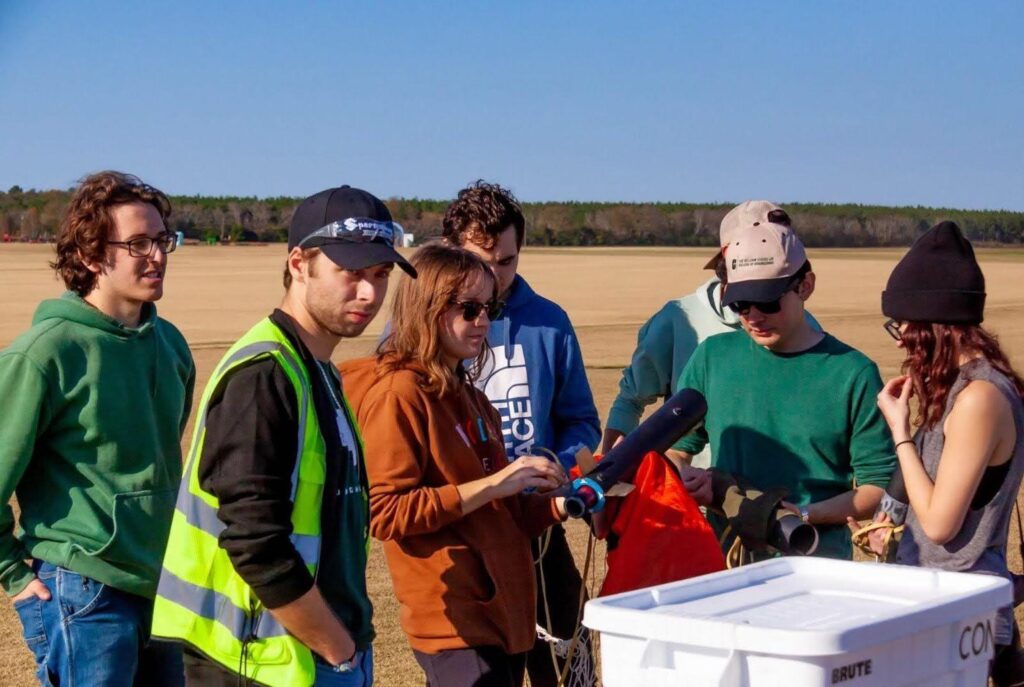
The UNC Charlotte 49er Rocketry Team placed third overall and received the following awards:
- Second Place: STEM Engagement Award
- Second Place: Reusable Vehicle Award
- Third Place: Safety Award
The High-Powered Rocketry Club at NC State finished fifth overall, reaching an apogee of 4,038 feet, just shy of their target altitude of 4,050 feet.

NASA Lunabotics Challenge 2024
This year’s national event challenged teams to build lunar robots, or “lunabots,” to excavate gravel in a simulated rocky terrain. Teams gained experience with NASA’s systems engineering process, providing excavation and locomotion data for the Artemis program.
The UNC Charlotte 49er Miners and UNC Asheville Lunabotics participated in lunar excavations during this competition.
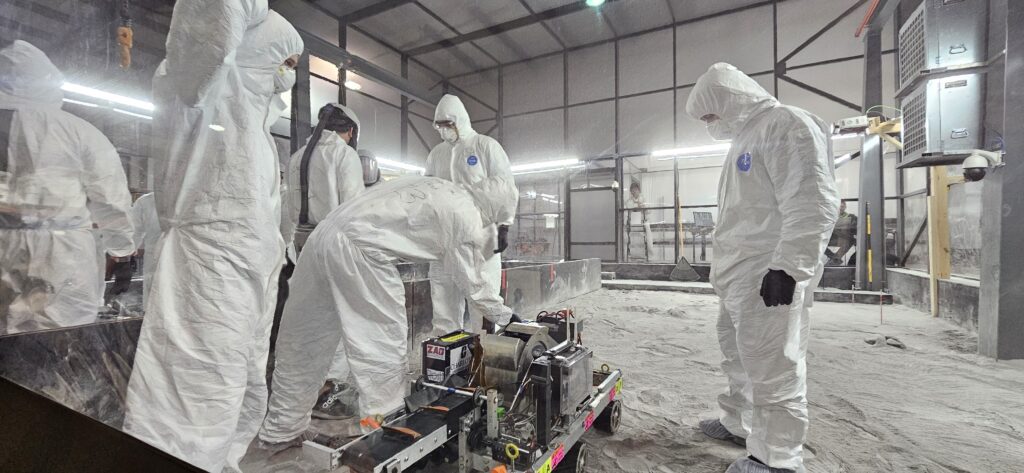
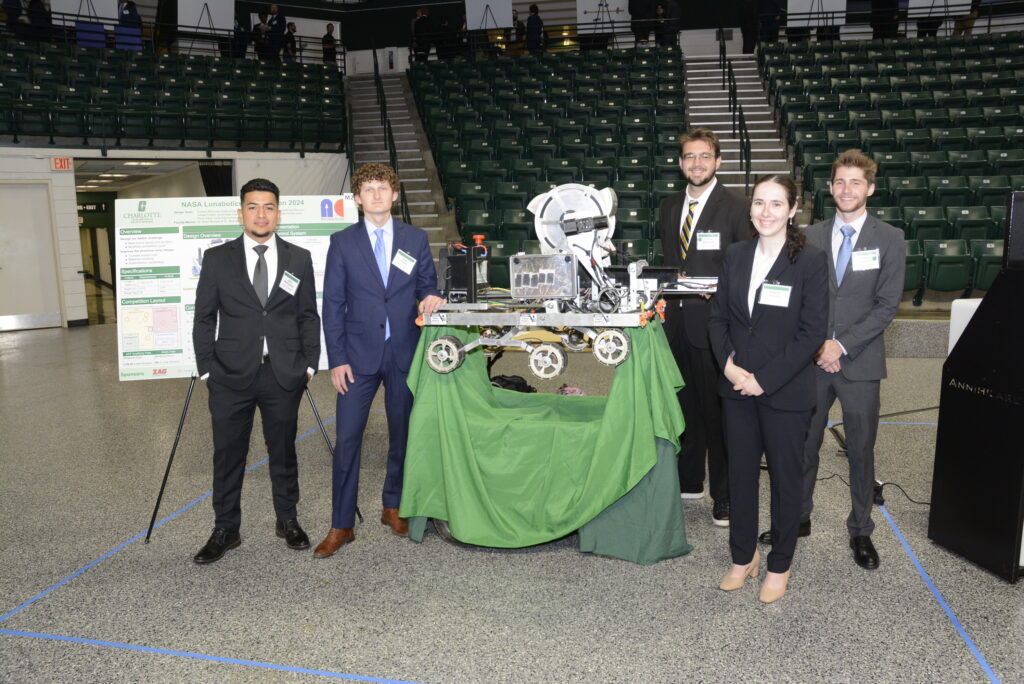
The UNC Charlotte 49er Miners placed 11th overall and earned first place in Presentation and Demonstrations, ranking highly among approximately 42 teams nationwide. They improved the efficiency, strength, and consistency of their mining machine’s subsystems, enhancing capacity and reducing material loss.
Although UNC Asheville’s Lunabotics Team did create a robot for transporting simulated lunar materials, scheduling conflicts prevented them from competing this year.

NASA Human Exploration Rover Challenge
NASA’s Human Exploration Rover Challenge (HERC) invites student teams to design and build human-powered vehicles to navigate simulated planetary surfaces, aligning with NASA’s Artemis mission to land the first woman and person of color on the moon. Teams of at least two students, including one female participant, navigate a half-mile course featuring simulated asteroid debris and rugged terrain while facing a simulated “limited oxygen” time constraint.
The Campbell University Human Exploration Rover Team competed against 41 other teams in this challenge. The team placed third overall, with members significantly contributing to leadership, composite manufacturing, design, and fabrication while mentoring fellow engineers.
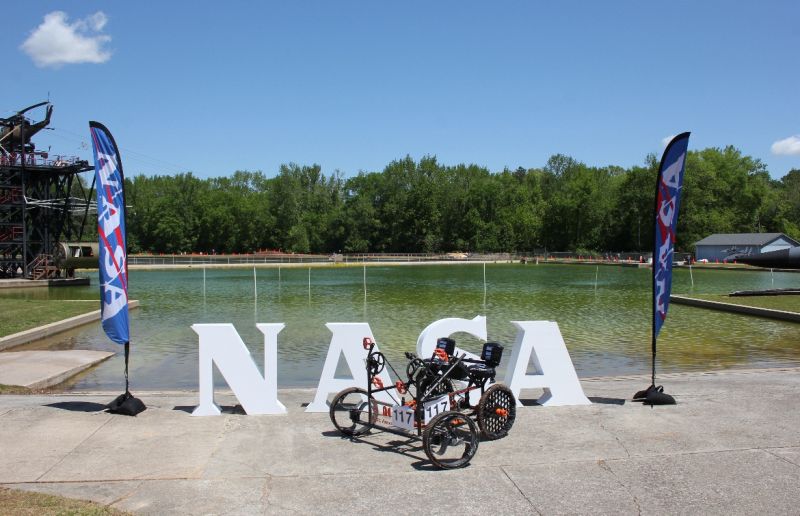
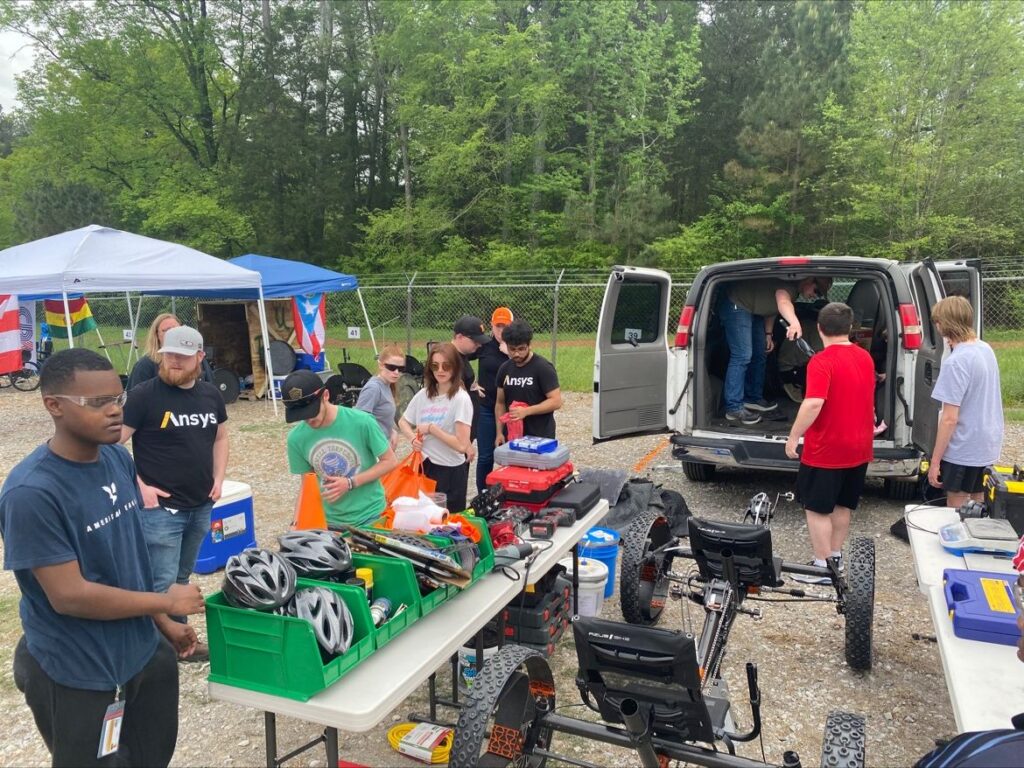
They also received the Jeff Norris and Joe Sexton Memorial Pit Crew Award, which honors a college team for effective teamwork, communication, fabrication, and collaboration with NASA’s pit crew. The team earned this award after successfully fabricating a steel replacement for a damaged transmission mounting frame during the competition.
Student Unmanned Aerial Systems (SUAS) Competition (2023-2024)
The national SUAS Competition challenges student teams to build unmanned aerial systems capable of autonomous tasks, obtaining information about distant objects through payload sensors.
The NC State Aerial Robotics Club designed a new airframe with an electric motor and custom carbon fiber wings, improving flight efficiency.

A member of the team recalls speaking with a high school counselor for a robotics team who wishes to explore UAV development and has extensive experience with payload delivery through his time in the military, who was thoroughly impressed with the team’s work.
“I was glad to see that someone with significant experience in UAVs thought our work was special and wanted advice on coaching his students. Our team was founded to develop world-class UAVs and engage others in this subject.”
American Institute of Aeronautics and Astronautics (AIAA) Design-Build-Fly
The AIAA Design-Build-Fly international competition challenges student teams to test how their aircraft execute electronic warfare missions with a burdensome pipe “antenna” on its wing.
Team Wolf Airlines successfully presented at the 2024 Region II Student Conference at the Kennedy Space Center in Florida. Their presentation focused on aircraft designed for urban air mobility and passenger transportation, showcasing advancements in design and manufacturing at North Carolina State University.
Despite challenges during flight testing, including multiple crashes, the aircraft demonstrated structural resilience and maneuverability. While the team did not qualify for the DBF competition, they successfully completed the delivery mission, highlighting their understanding and control of the aircraft.
Spaceport America Cup 2023-24
The international Spaceport America Cup involves a rocket design-build-fly competition, challenging students to launch their rockets 10,000 to 30,000 feet.
The Lenoir-Rhyne University Rocket Team placed 26th out of 122 teams, reaching 9,833 feet—just short of their 10,000-foot goal. This ranking marks the team’s best performance in a university rocket competition since its establishment in 2017, successfully launching three different payloads and achieving 70% of their mission goals.
“Together, we accomplished what no other team has before. The dedication and teamwork exhibited by this group have laid the foundation for a legacy of students from all backgrounds to get involved in rocketry and space,” said team member Erica Schulz.
NIH DEBUT Challenge
The National Institute of Biomedical Imaging and Bioengineering (NIBIB) and VentureWell are challenging undergraduate student teams to develop technology solutions to unmet needs in any area of healthcare. North Carolina Agricultural and Technical State University’s “Space Exo-ploration” team has an objective to develop a multi-purpose device to evaluate the interaction between different cells with future applications to support space exploration while facilitating disease diagnosis on Earth.
NC Space Grant is anxiously awaiting results and next steps.



Launching Successful Student Careers
“NC Space Grant continually hears from program alumni that being part of a team under the Team Experience and Competition award has been essential for their academic and career success,” Canfield said. “NC Space Grant follows the career progression of our program alumni, and we consistently see key team competition members take on the hardest challenges as they launch their careers.”
- Categories:

